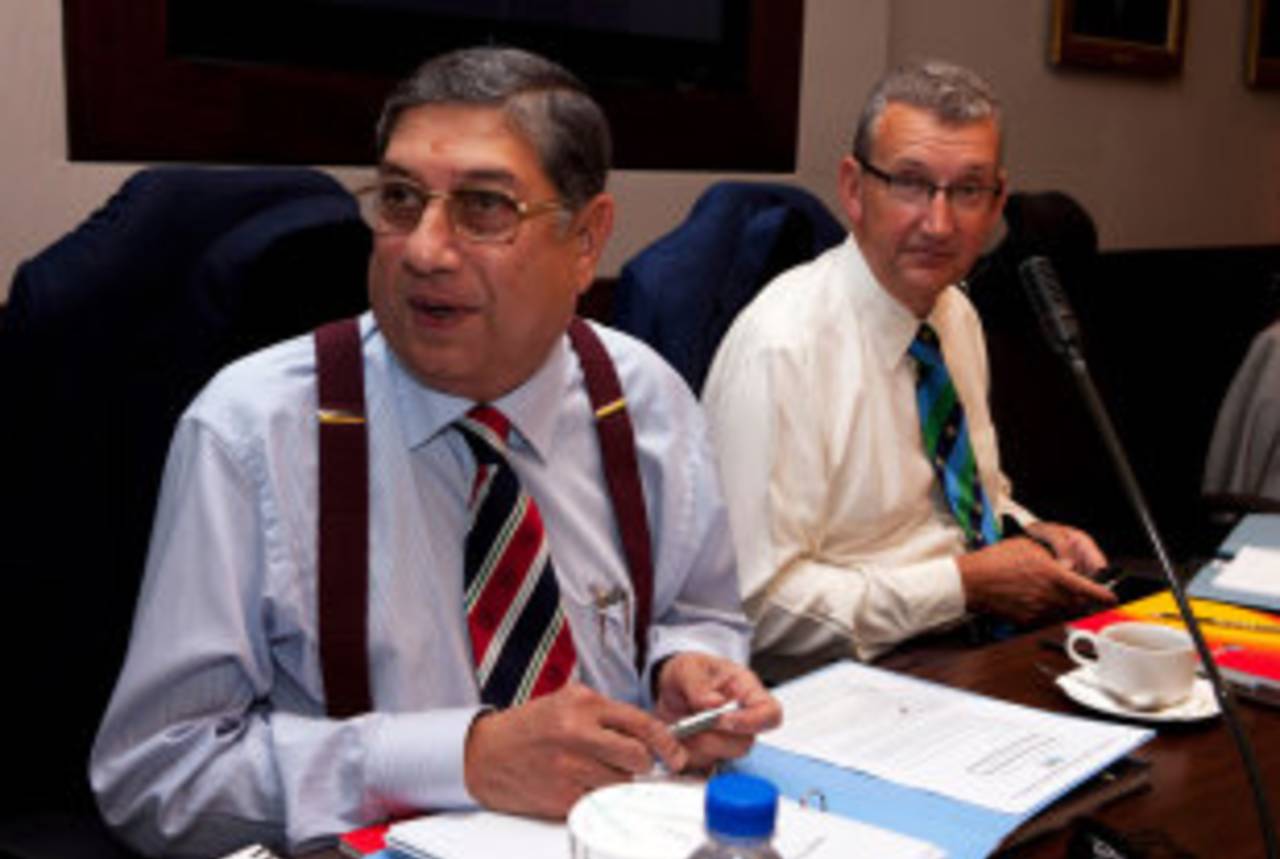Oliver under threat after finest triumph
Keith Oliver, a successful advocate of the rights of smaller cricketing nations, is facing a threat to his position on the ICC board barely a month after his greatest triumph
David Hopps
13-May-2014

Keith Oliver at an ICC Board meeting with India's representative N Srinivasan soon after his election • Getty Images
Keith Oliver, a successful advocate of the rights of smaller cricketing nations, is facing a threat to his position on the ICC board barely a month after his greatest triumph.
Oliver, chairman of Cricket Scotland for the past 13 years, won the argument within the ICC Board for Associate nations to have a clear pathway into major international events during the shake-up which saw India, England and Australia take greater control of the world game.
Thanks in no small measure to the passionate advocacy of Oliver, an Edinburgh lawyer, Associate nations have gradually won greater opportunities to qualify for ICC limited-overs events and even hold out the hope of one day becoming a Test nation after the introduction of a play-off system every four years with the bottom Test nation.
International cricket's closed shop is not exactly an example of rampant meritocracy, but it is painfully shifting that way.
But that has not stopped some of the smaller nations with no chance of becoming Test nations seeking to oust Oliver. Ken Farmiloe, chairman of Belgium Cricket, which does not even rank in the eight divisions of the World Cricket League, is opposing him for the European Associates and Affiliates nomination to the ICC Board.
Oliver, twice elected and a member of the ICC Board for four years, has become a respected figure in that time. He is a strong advocate not only of meritocracy, but of the view that ICC developmental money should be spent for carefully-assessed purposes and this might have vexed some nations who would prefer more freedom how to allocate the ICC's largesse.
He was also sympathetic to the stand of India, Australia and England during the recent power struggle within the ICC. Scotland, too, have prospered recently, qualifying for the 2015 World Cup. Once an Associate nation is successful enough to mix with the big boys, the irony is that this success can potentially count against their officials.
The ICC Board confirmed in Dubai last month the introduction of a groundbreaking opportunity in which the winners of the ICC Intercontinental Cup - a tournament featuring the top non-Test sides - will play four five-day matches against the lowest-ranked Test team.
David Richardson, the ICC's chief executive, proclaimed: "The ICC Test Challenge now opens the door for associate members to play Test cricket."
Giles Clarke, the ECB chairman, also guaranteed that if Ireland won the Intercontinental Cup and then the Test challenge they would be granted an inaugural Test against England at Lord's in the Ashes summer of 2019.
If Oliver survives the election, his European nomination to the ICC Board would be considered at the annual conference in Melbourne in June along with nominations from other Associate nations in other regions of the world.
David Hopps is the UK editor of ESPNcricinfo